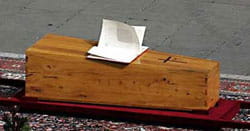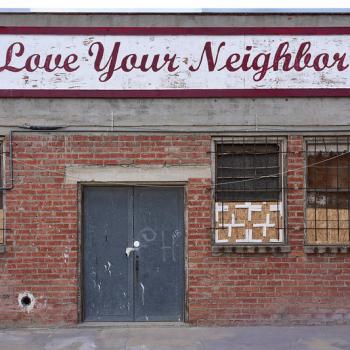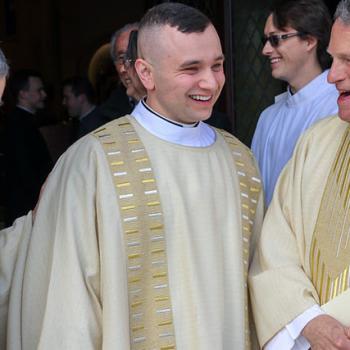 It was the first day of spring in 2005. I was at the florist in the seaside village where I grew up, assembling a basket of flowering spring plants for my sister, who had just given birth.
It was the first day of spring in 2005. I was at the florist in the seaside village where I grew up, assembling a basket of flowering spring plants for my sister, who had just given birth.
Immersing my hands in budding greenery, inhaling the earthy scents—it helped to chase away, for a few moments, the looming death which occupied my mind. Later that evening, watching my sister's pink newborn suck on his tiny fists, I smiled; it was a welcome break from the tragedy that was flooding the airwaves, and leaving me feeling panicked.
Terri Schindler Schiavo was being dehydrated to death in Florida, and I took it very personally.
The non-stop talk about Schiavo, and the almost blithe way her life was being reduced to what she could "do"—as though her value as a human being hinged upon her utility—had meaning in my life.
I have been blessed to be the mother of three daughters. Christina, the youngest, has Down syndrome, and the pundits and "experts" who were judging Terri's fitness for survival based on her motor and communication skills were hitting a nerve. My three-year-old wasn't speaking yet, had just learned to walk, and potty training seemed a far-off dream.
Deep in my heart, I feared that if laws were on the books demanding that we qualify for medical treatment based on our abilities, then Christina would not fare well. I was already aware that 92% of mothers whose babies were pre-natally diagnosed with Down syndrome chose to abort their baby, out of fear that children like Christina would present too much of a burden. What would happen, I wondered, if she needed a feeding tube in her later years, and her father and I weren't around to advocate for her? Would some "well-intentioned" nurse decide to do her a favor by ending her life?
Schiavo had her family by her side, yet they were helpless to give her even one drop of water, though the flowers in the vase next to her bed had plenty, to keep them fresh and alive. Would that, I wondered, be our situation someday?
I fought pain in my stomach as I listened to Sean Hannity report from Schiavo's hospice in Florida. What was a woman my age doing in a hospice, anyway? Until her husband had won a battle to remove her feeding tube, Terri Schiavo had not been dying. After his victory, though, even an act of Congress wasn't enough to save her life. What chance would I have of saving Christina's life against a society which devalues the weaker members?
My husband, Francisco, and I had just been through the trauma of fighting for our daughter's life inside a hospital. The previous winter, Christina had been hospitalized with double pneumonia, and, to our dismay, the nurses were nonchalant about her treatment. She wouldn't take an oxygen mask, so I requested a tent, only to be told, "we don't do that anymore."
Francisco and I took turns holding a breathing tube to her mouth around the clock for a week. When the oxygen alarm went off, no one came to check on her until we called them. We brought in friends to pray with us through the nights and keep us awake, so we could monitor Christina's breathing. They were chased out by an angry head nurse who said she "was tired of parents like you wanting special treatment." We shuddered at that and wondered to ourselves whether the staff wanted our daughter to die.
Thankfully, our pediatrician defended us, overrode the hostile nurses, and allowed our friends at Christina's bedside. But that experience was a small, frightening taste of what the Schindlers were enduring, and my heart broke for them.
As Schiavo grew weaker from dehydration and neared the end, I felt the need to do something. I packed the girls in the car, along with a huge sign they had made," SAVE TERRI." We picked up an elderly friend in Philadelphia and headed to Washington DC to protest this outrage. Having missed a rally at the White House, we instead stood on the steps of the Supreme Court with our sign, praying the rosary for hours in the afternoon sun. Christina toddled up and down the enormous white marble steps, dutifully followed by her sister. Most passersby looked away guiltily, a few smiled, and a priest joined us for the Sorrowful Mysteries. Together we remembered the Sorrowful Mother who watched her only Son killed, and begged for her intercession in a miracle.
The Supreme Court allowed no miracle. We drove home to Philadelphia dejected. Thinking to lift our spirits, I took the girls to see the Liberty Bell. Upon seeing it, though, I broke into tears. How far my country had wandered from the intentions of the signers of the Declaration of Independence, when a human being's right to the life they had could be deprived in such a way.
Terri Schindler Schiavo died the next day, on March 31, 2005.




